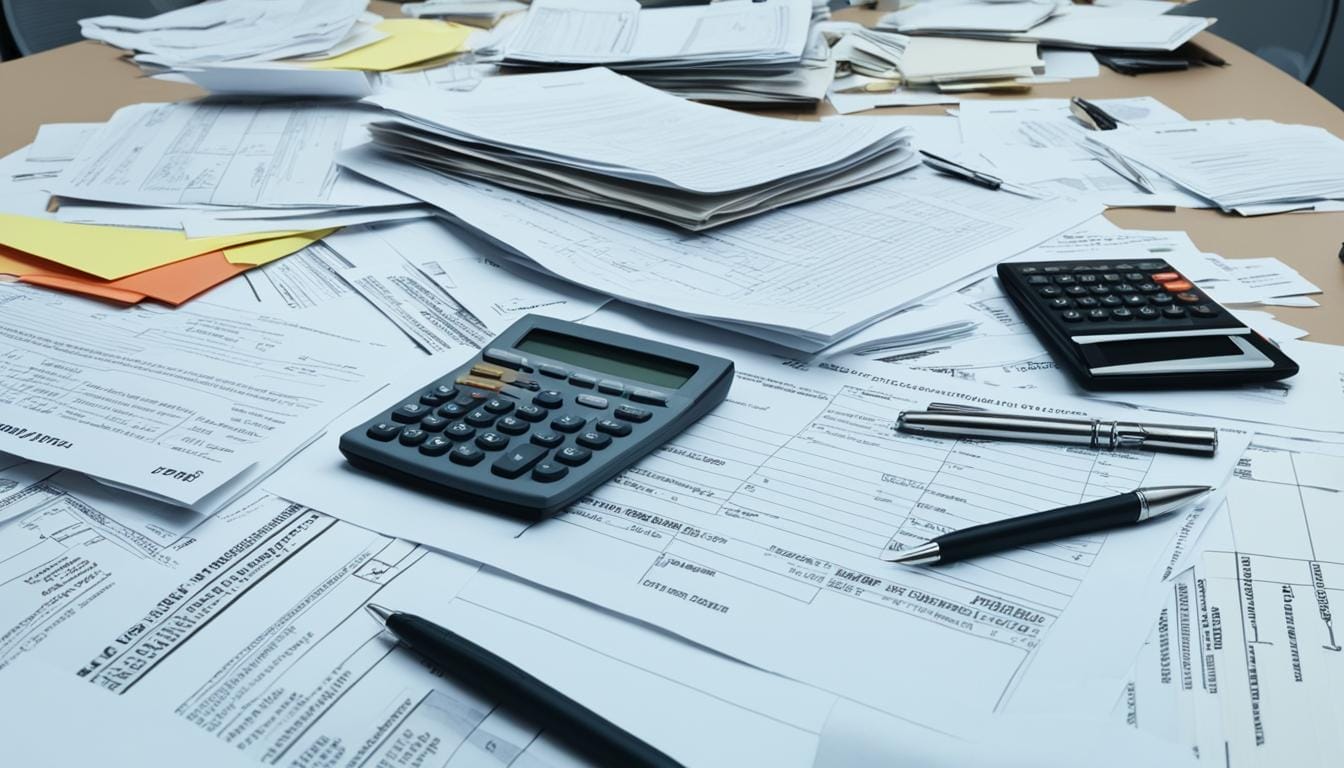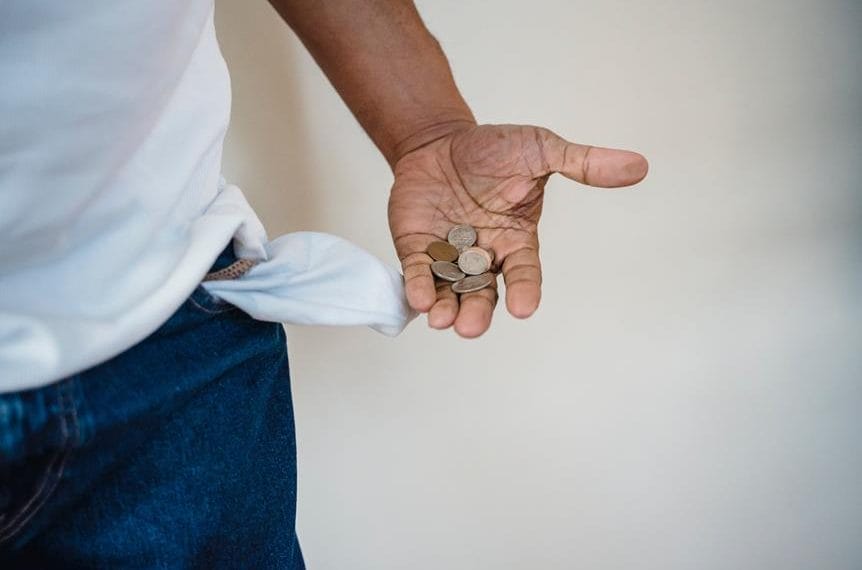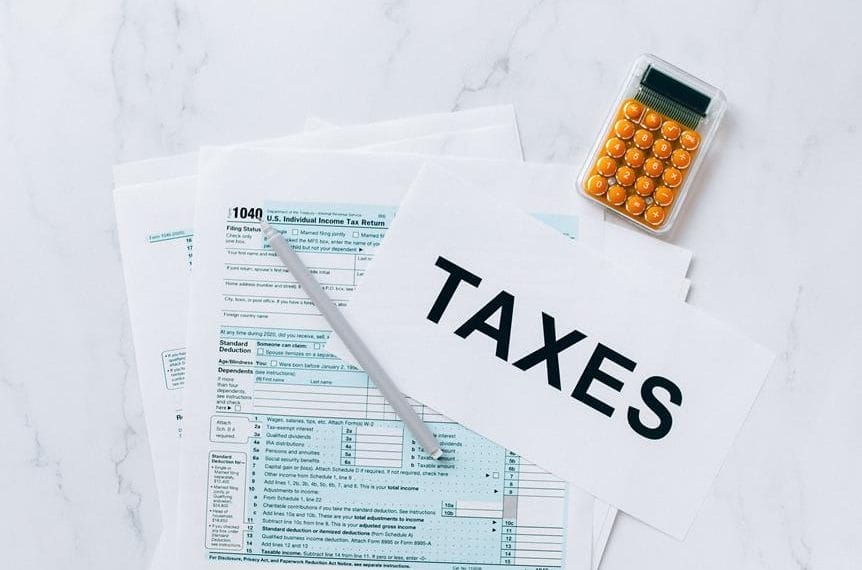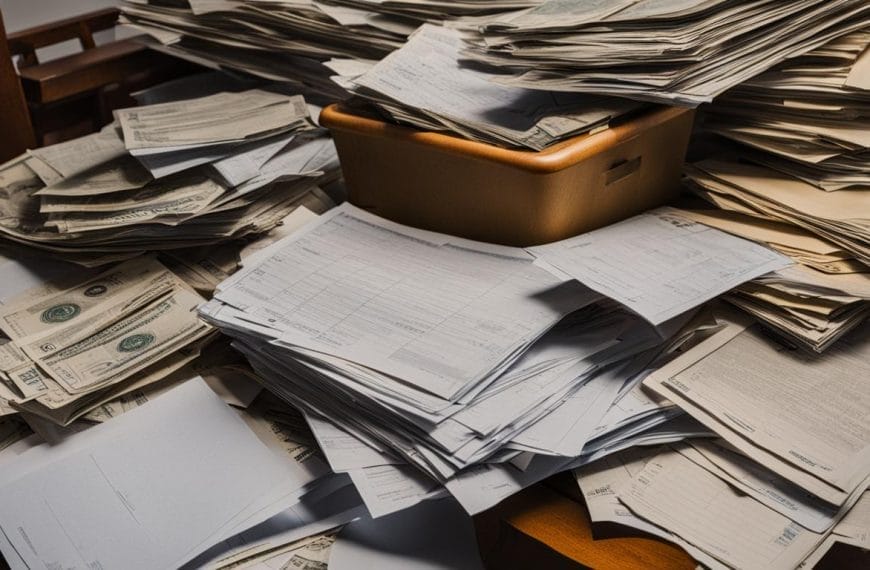Are you considering filing for Chapter 7 bankruptcy? It’s important to be well-prepared and organized before starting the process. Understanding the documents needed to file Chapter 7 is crucial for a successful bankruptcy case. This comprehensive checklist will guide you through the necessary paperwork and ensure a smooth filing experience.
When filing for Chapter 7 bankruptcy, having the right documents and information readily available is essential. It will save you time, prevent delays, and increase your chances of a successful outcome. Here is a checklist of the documents required to complete the Chapter 7 bankruptcy forms:
- Proof of income: Gather your paycheck stubs, tax returns, or any other documentation that provides evidence of your income.
- List of assets: Make a detailed inventory of your assets, including real estate, vehicles, bank accounts, investments, and any other valuable possessions you may have.
- List of liabilities: Compile a list of all your debts, such as credit card bills, medical bills, personal loans, and any other outstanding financial obligations.
- Personal identification: Have your government-issued identification, such as a driver’s license or passport, ready.
- List of creditors: Prepare a list of all your creditors, including their names, addresses, and account numbers.
- Bank statements: Collect several months’ worth of bank statements, showing your account activity and balances.
By gathering these essential documents and completing the necessary Chapter 7 bankruptcy forms, you will be well on your way to resolving your financial difficulties and achieving a fresh start.
Stay tuned for the next section of our article, where we will delve into the specific Chapter 7 bankruptcy forms and required documents in detail.
Chapter 7 Bankruptcy Forms and Required Documents
Once you have decided to file for Chapter 7 bankruptcy, it is crucial to gather all the necessary documents to ensure a smooth filing process. These documents will be used to complete the Chapter 7 bankruptcy forms, which will be submitted to the court. To help you stay organized, here is a list of the key forms and documents you will need:
1. Chapter 7 Bankruptcy Forms:
To initiate the bankruptcy process, you will need to complete several forms. These forms include:
- Voluntary Petition for Individuals Filing for Bankruptcy (Form 101): This form serves as your formal request for bankruptcy.
- Statement of Financial Affairs for Individuals Filing for Bankruptcy (Form 122A-1): This form requires you to disclose your financial history, including income, expenses, assets, and liabilities.
- Initial Statement About an Eviction Judgment Against You (Form 101A): If you are facing eviction, this form must be completed.
- Statement of Intentions for Individuals Filing Under Chapter 7 (Form 108): This form outlines your intentions regarding secured debts, such as mortgages or car loans.
2. Documents Needed After Filing Chapter 7:
In addition to the bankruptcy forms, you will also need to provide supporting documents. These documents verify the information provided in the forms and help the bankruptcy trustee assess your financial situation. The required documents may include:
- List of Creditors: A comprehensive list of all your creditors, including their contact information and the amounts owed.
- Paycheck Stubs: Recent paycheck stubs or proof of income from the past six months.
- Tax Returns: Copies of your federal and state tax returns for the previous two years.
- Bank Statements: Statements for all your bank accounts, including checking, savings, and investment accounts.
It is important to note that the specific documents required may vary depending on your individual circumstances and the requirements of the bankruptcy trustee assigned to your case. It is always advisable to consult with an attorney or an experienced bankruptcy professional to ensure you have all the necessary documents.
By gathering and organizing these documents beforehand, you can streamline the Chapter 7 bankruptcy process and increase your chances of a successful filing.
Additional Documents and Tips for a Successful Chapter 7 Bankruptcy Filing
In addition to the necessary documents mentioned earlier, there are a few additional items you will need to include in your bankruptcy paperwork to ensure a smooth and successful Chapter 7 bankruptcy filing.
Firstly, it’s important to maintain a thorough bankruptcy documents checklist. This will help you keep track of all the necessary paperwork and ensure you don’t miss any crucial documents during the filing process. Refer to the checklist regularly to ensure you have all the required information.
One key document you will need is an income record. This may include recent paycheck stubs or other evidence of income. Providing this documentation is essential to demonstrate your financial situation and determine your eligibility for Chapter 7 bankruptcy.
Additionally, you will need to gather bank statements from all your financial accounts. These statements will give the bankruptcy trustee a clear understanding of your financial transactions and help verify the accuracy of the information provided in your bankruptcy forms.
Furthermore, it is crucial to include your most recent tax returns in your bankruptcy paperwork. These documents will help establish your income and assess any tax liabilities, ensuring a comprehensive view of your financial situation.
Last but not least, don’t forget to include a valid form of identification, such as a driver’s license or passport. This is essential to verify your identity and establish your eligibility for bankruptcy filing.
By gathering and including these additional documents in your bankruptcy paperwork, you increase the chances of a successful Chapter 7 bankruptcy filing. Ensure you have all the necessary paperwork in order to expedite the process and achieve a fresh financial start.













